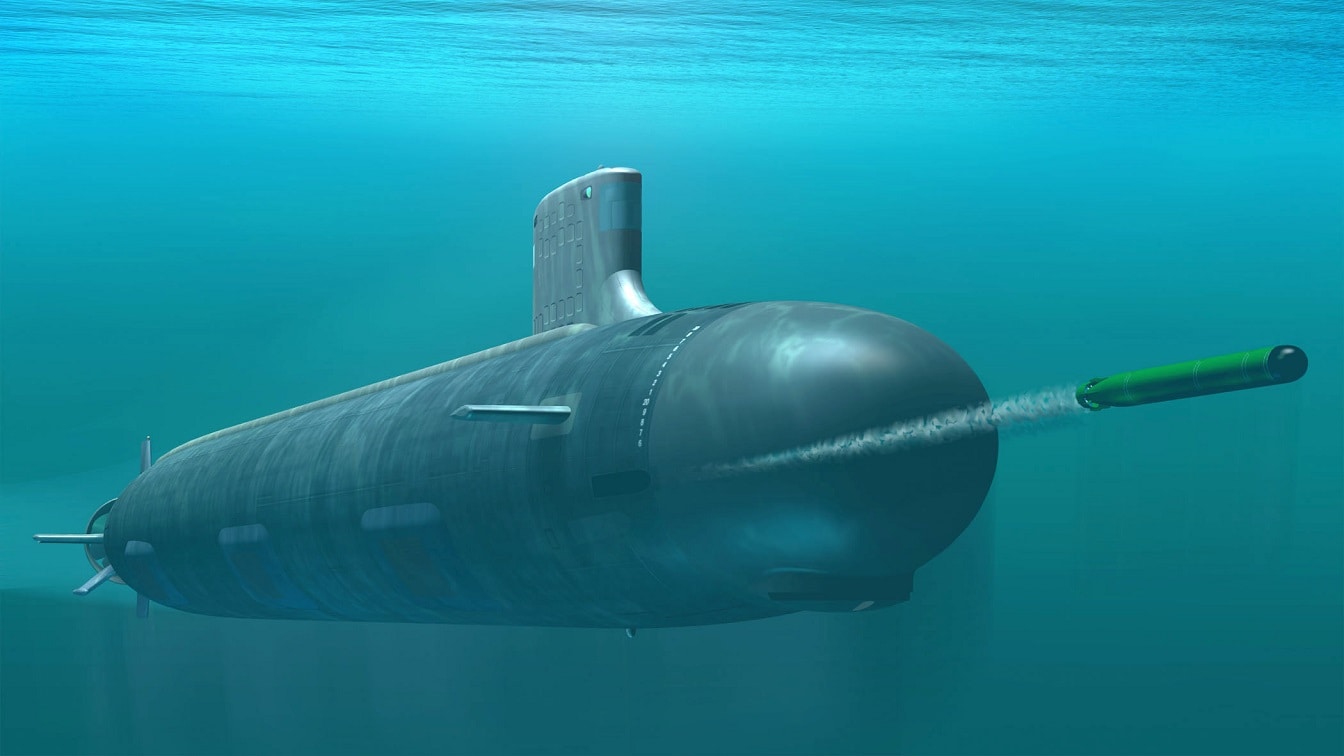This month the first new cadre of nuclear-trained Australian sailors graduated from the United States Navy’s nuclear power training program in Charleston, South Carolina – and will eventually serve on the future Royal Australian Navy’s submarines that are being developed as part of the AUKUS technical cooperation agreement between the U.S., Australia, and the UK.
The officers completed their training at the six-month Naval Nuclear Power Training Command and Nuclear Power School, which teaches the fundamentals of running U.S. naval nuclear reactors on submarines and aircraft carriers.
“It’s a historic event for our Navy, a historic event for our submarine force and I think it’s a historic event for our nation,” said Australia’s Chief of Navy, Vice Admiral Mark Hammond, according to Australian broadcaster ABC, per USNI News. “Two years ago, this wasn’t on the radar.”
Under the “AUKUS pact,” London and Washington had each agreed to help Canberra build and operate its own fleet of nuclear-propelled submarines by 2040.
It was also announced on Tuesday that Q-CTRL, an Australian-based developer of quantum technologies through quantum infrastructure software, would partner with Australia’s Department of Defence to develop quantum sensors that will deliver quantum-assured navigation capability for military platforms. The program will reportedly provide quantum-enhanced positioning and navigation capability built on Q-CTRL’s software-ruggedized quantum sensing technology.
The quantum-enhanced navigation will deliver the ability for vehicles to position accurately over long periods when GPS is unavailable or untrustworthy, and it could open new frontiers for defense operations. In air, space, underground, and underwater, quantum navigation permits long-endurance missions that were otherwise impossible, and secures positioning against jamming or spoofing by hostile adversaries, the company told 19FortyFive via a statement.
Existing alternatives to GPS deliver limited benefits and notably can suffer from rapidly accumulating errors that can pose tremendous risks to defense missions. Currently, most naval vessels use backup “inertial navigation” systems that sense motion to aid in positioning but can lead to a vessel being off course by miles after just hours without GPS. That could be enough to steer a ship into an underwater obstacle overnight under poor conditions.
Q-CTRL’s technology employs the quantum physics of atoms to detect motion and small changes in the Earth’s gravitational field, while it then leverages these signals to enable navigation over extended periods. Quantum sensors provide very reliable outputs because their signals are derived from the fundamental laws of physics, unlike existing mechanical or electrical systems that degrade over time or under different operating conditions.
“From day one we knew that our specialized expertise in quantum control could unlock totally new applications of quantum technology,” explained Q-CTRL CEO and Founder Prof. Michael J. Biercuk. “We’ve shown we can boost the performance of quantum computers and quantum sensors by orders of magnitude – entirely through software. Now we’re pleased to be applying these capabilities to a critical defense mission for Australia.”
Q-CTRL’s contract with the Australian DoD supports the first of a multi-year effort to field-deploy and validate miniaturized systems on defense platforms. It further represents one of the first international partnerships between the government and the private sector to apply quantum technology in real defense settings.
“Defense recognises that quantum sensing has the potential to fundamentally transform Defence capability. Partnerships of this kind demonstrate our capacity to translate innovative concepts into capability, delivered by a world-class Australian deep-tech company,” added Interim Head of the Advanced Strategic Capabilities Accelerator, Professor Emily Hilder.
Q-CTRL, which was founded in 2017, has been an inaugural member of the IBM Quantum Startup network since 2018.
Author Experience and Expertise
A Senior Editor for 19FortyFive, Peter Suciu is a Michigan-based writer. He has contributed to more than four dozen magazines, newspapers, and websites with over 3,200 published pieces over a twenty-year career in journalism. He regularly writes about military hardware, firearms history, cybersecurity, politics, and international affairs. Peter is also a Contributing Writer for Forbes and Clearance Jobs. You can follow him on Twitter: @PeterSuciu.
From 19FortyFive
Total Massacre’: Ukraine Footage Shows Russian Cruise Missile Shipment Attacked
Video – Ukraine Has Massive New NATO ‘Cannon’ Ready To Fight Russia
‘Americans Will Pay The Price’: One Democrat Is Angry At Joe Biden

